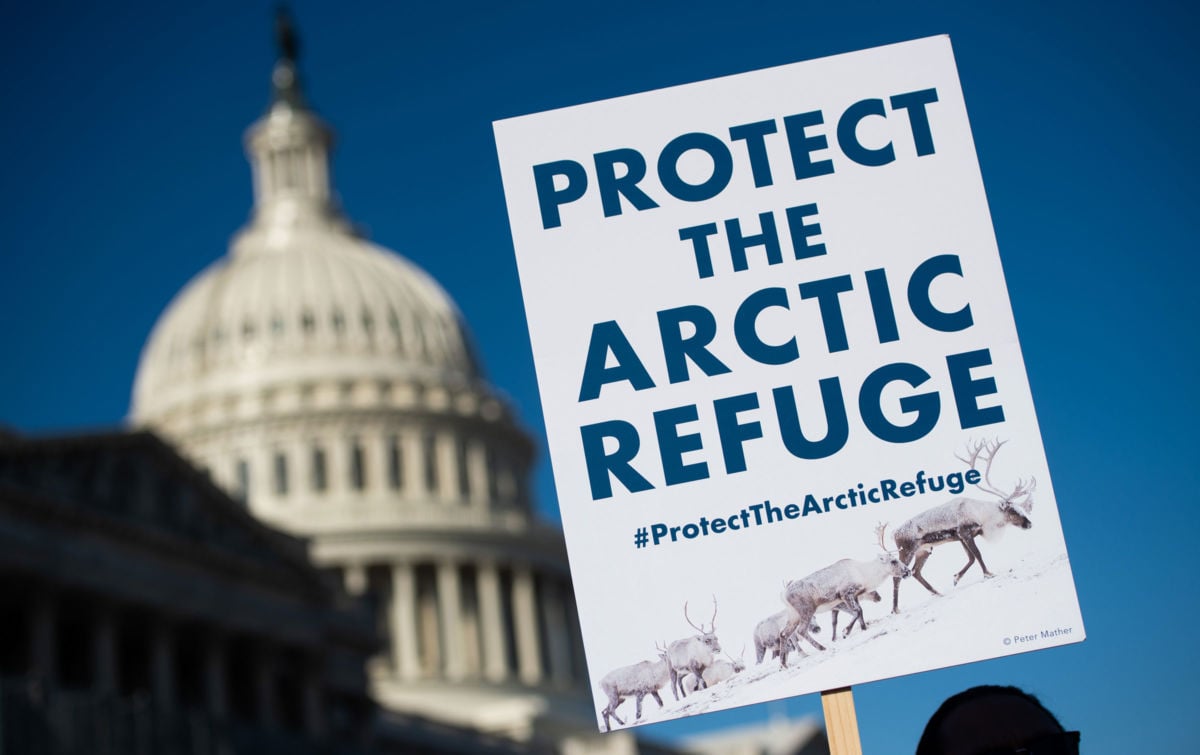Part of the Series
Planet or Profit
The Bureau of Land Management has confirmed that it is moving forward with public meetings to rework management plans for drilling in the Arctic National Wildlife Refuge, despite many other Interior Department activities remaining frozen, according to Alaska Public Media.
The Trump administration is thus ensuring that many other employees within the Interior Department continue working toward opening the Arctic National Wildlife Refuge to oil drilling, even as national parks remain closed.
In April 2018 the Trump administration took the first step toward oil and gas drilling in the wildlife refuge by officially launching a 60-day review process for holding a lease sale in the pristine area.
Since then, the administration has worked consistently toward opening the wildlife refuge to drilling, even despite the government shutdown that Trump himself caused.
Opponents of the efforts to push drilling forward have criticized the move, pointing out how obvious the contrast is between this and the lack of staffing at national parks that is leading to overflowing garbage, vandalism and unattended public toilets.
Bridget Psarianos, a staff attorney with the nonprofit public interest environmental law firm Trustees for Alaska, told Alaska Public Media that it is “unusual” behavior for the Bureau of Land Management to move forward with public meetings despite a government shutdown.
Trustees for Alaska represents several environmental organizations that have sued the Trump administration over oil development in Alaska.
In her remarks to Alaska Public Media, Psarianos — who formerly worked as project manager for the Bureau of Land Management’s Alaska office as an Interior Department employee — added: “When I was with the government, I never saw anything like that happen. Generally, all nonessential work was basically shut down and employees are not even supposed to be checking their emails.”
On January 7, Rep. Raúl Grijalva, the new Democratic chairman of the House Natural Resources Committee, demanded details from David Bernhardt, the acting secretary of the Department of Interior, on precisely how the Department of the Interior is still working toward pushing for sales of oil leases in the Arctic National Wildlife Refuge, despite the government shutdown.
Congressman Grijalva’s letter questioned whether Bernhardt’s department’s work is appropriate during the shutdown, as well as its continuing work toward overhauling the management plan for the area west of the wildlife refuge in the National Petroleum Reserve-Alaska.
“Asking people to comment on two major development processes in the Arctic with huge potential environmental and human consequences without anyone in the agency able to answer questions defeats the purpose of the public participation process,” Grijalva wrote.
Grijalva asked for a response by this Friday, because even with the Bureau of Land Management’s reduced staff, “there should be no difficulty having those employees provide responses to these questions,” due to the fact that department employees are still in the office working on oil development.
Psarianos believes that Bureau of Land Management employees working in Alaska are simply being allowed to continue to work in order to promote more oil development during the shutdown, and told Alaska Public Media that they are thus acting under the dictates and authority of an administration “whose priorities are drilling on our public lands rather than performing essential government services, like picking up trash in National Parks.”
Join us in defending the truth before it’s too late
The future of independent journalism is uncertain, and the consequences of losing it are too grave to ignore. To ensure Truthout remains safe, strong, and free, we need to raise $47,000 in the next 8 days. Every dollar raised goes directly toward the costs of producing news you can trust.
Please give what you can — because by supporting us with a tax-deductible donation, you’re not just preserving a source of news, you’re helping to safeguard what’s left of our democracy.
